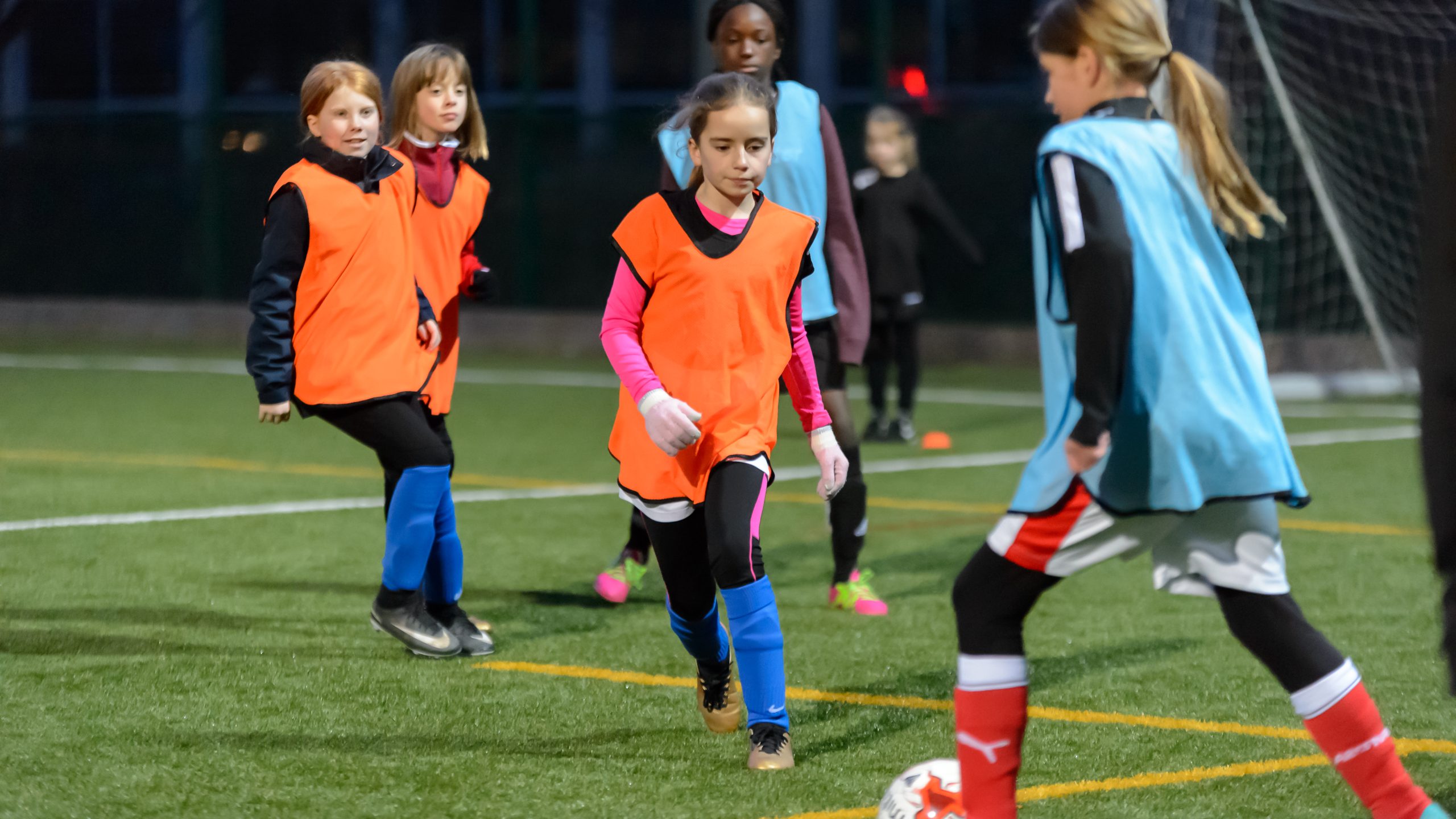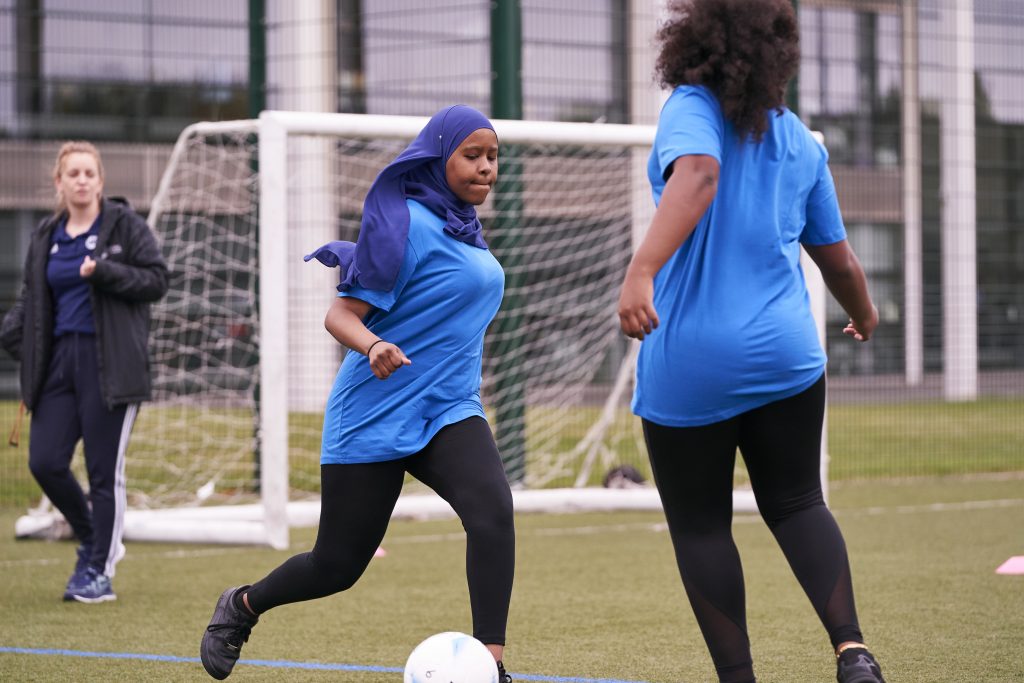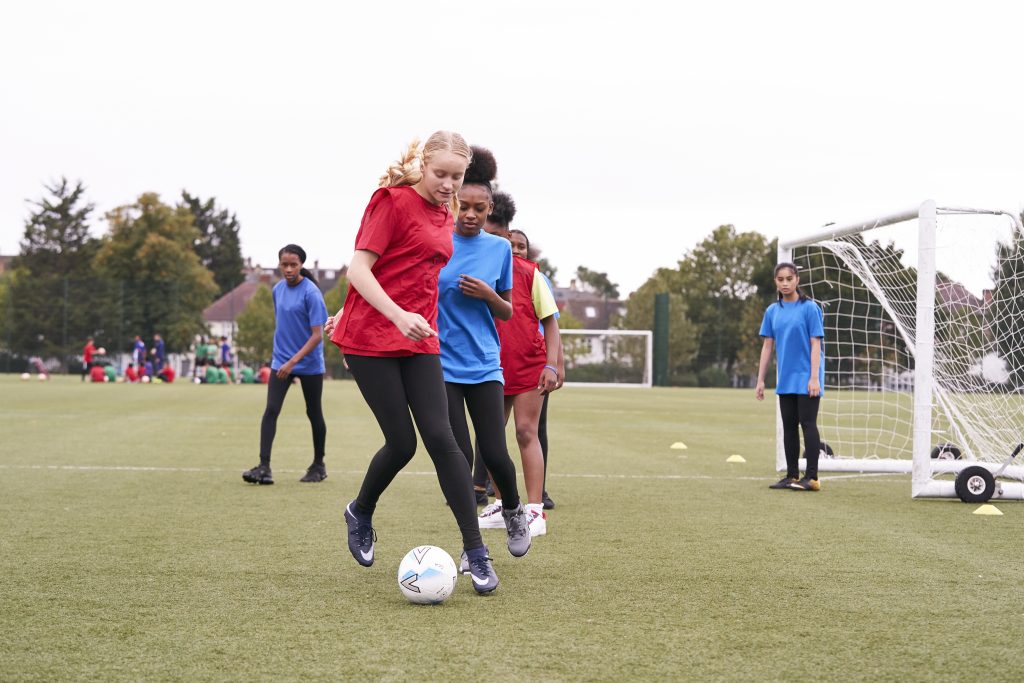The Euros final of 31 July 2022 is now a month ago but the memories remain extraordinarily vivid. Our Lionesses expressed the joy and freedom of playing team sport in a way that has left magical images etched into the memories of a nation. In the days that followed I spoke to a stream of journalists. “What needs to happen next” they asked. The answer of course is “a lot.”
This is not to downplay the epic amount of fight and energy that has already gone in to reaching this point in women’s football, but for female team sport as a whole we still have a way to go. Ultimately, we want to reach a point where the free spirit of the Lionesses, and of the girls in the stands – not least that wonderful little girl, Tess – becomes the norm. Because surely, women and girls deserve a 50:50 share in the joy of sport.
A lot has been said about the Lionesses and there is no doubt that their exceptional skill and teamwork, their joy and lack of inhibition, their leadership and resilience should crush once and for all the idea that sport is not for women! In their millions, girls around the UK, around Europe and the world will now be inspired to reach the top. This generation of broadcasters, sports administrators, ministers, agencies, sponsors, teachers, community leaders and parents have a responsibility to ensure our girls’ dreams can be fulfilled. We must not let our lion cubs down.
This matters for society
Sarina Wiegman said the Lionesses “have changed society”. She’s right. This is about more than sport. Sport, not least team sport, equips girls for life and for far too long girls have missed out, with 23% fewer girls than boys playing in teams.
Sport is joyful, and it can temper anxiety as well as build bone strength so more girls playing would help mitigate the epidemic of teenage self-harm and eating disorders and helping to reduce osteoporosis in later-life. But beyond health, playing in a team can make us less fearful to take risks at work and more resilient to everything life throws at us. Sport teaches us how to fail and learn from it, how to support people in shared endeavour and how to allow others to support us, we learn the importance of communication and we learn how to lead.
94% of women in top jobs in business have played sport. Privilege may play a part in this statistic but given even the most privileged women don’t all play sport there is surely a link. So, at Women in Sport, we believe that if more girls and women got a chance to play team sport, more would end up as decision-makers. Given the unprecedented global challenges of climate change, migration and conflict we need to equip this generation with resilience and leadership skills like none other before it, and we need women at the top table.
-
23
%
fewer girls than boys play team sport, which we know provides resilience, leaderships and teamwork
-
70
%
of sporty girls now dream of reaching the top, compared with 50% two years ago, before the Lionesses' success
But there is a long way to go
In sport women have been treated as second class citizens for so long that the inequality is deeply engrained in our institutions. The 50-year ban on women playing at FA grounds 1921-1971 has now been more widely publicised, but it wasn’t unusual. The founder of the Modern Olympics was savage and overt in his exclusion of women, and some battles to participate have only been won in the last 10 years (ski-jumping for example). Beyond being allowed to play, what visibility have women had? The biggest female team sport to date, netball, was hardly screened until the last few years because women were not at the decision-making table.
I don’t like to pop our collective bubble of excitement at the Lionesses but the first step in achieving change is to face up to the truth. Still, the experience of women playing for premiership clubs is in stark contrast to their male counterparts. They can be on the minimum wage, expected to buy their own boots, to pay their own expenses, to fit their training in around the boys and men’s use of the pitches. Girls may not be allowed out of school to practice but have to watch boys from the same club picked up by chauffeurs. What does all this say to our most successful female footballers? That society doesn’t value them, that their hard work and effort and skills aren’t worth anything. It’s simply wrong. And the girls can’t and shouldn’t have to call this out themselves or they lose their slot. That’s why we are calling it out for them.
So what must we do?
The next step must surely be to throw out the doubters and all those who still seek to exclude or suppress women. We must have zero tolerance of this. Such attitudes must step aside and make space for women. Women and girls make up 50% of society so there are campaigns for a 50:50 Parliament and for 50:50 City Boardrooms so why not for 50:50 of the top executives in sport, for 50:50 use of the playground, of the pitches, for 50% of sports budgets, 50% of coverage and 50% of the sponsorship. Give me one reason why this should be a pipe dream?
Perhaps most importantly of all women and girls have a right to 50% of the joy.
So for all the girls inspired by the Lionesses. Keep dreaming, keep fighting because it won’t be easy, we’re not there yet, but we’re fighting with you.



